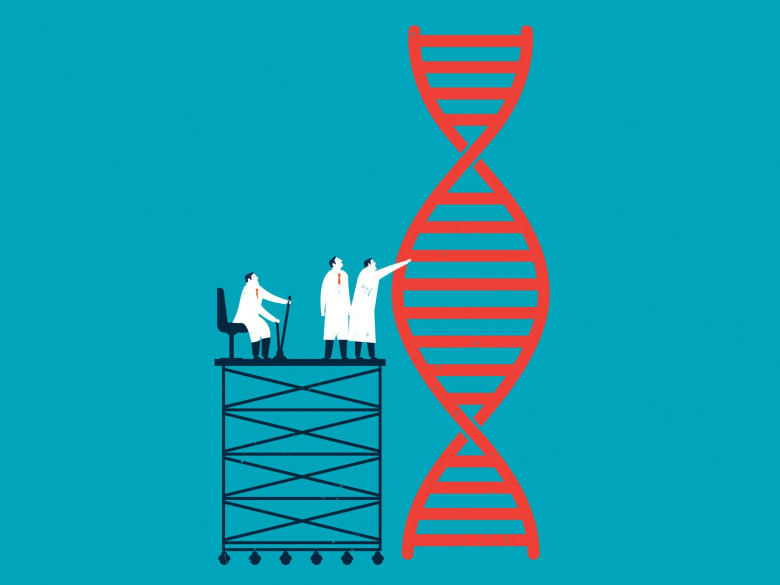You Can Get Your Whole Genome Sequenced. But Should You?
There are 3 billion ways for something to go wrong with your DNA. But diseases caused by an error to a single gene—what geneticists call "big ticket" mutations—are quite rare. That’s why doctors don’t routinely recommend whole genome sequencing. But as the cost of sequencing continues to plummet and companies offer more and more ways for consumers to peer into their DNA, physicians are trying to figure out how genetic data might work into your next check-up. Can these tests really help people improve their health? Or will they confuse doctors, scare patients, and drive up unnecessary costs?
To find out, primary care doc Jason Vassy recruited a handful of colleagues from around Boston to sequence the full genomes of 50 patients—the first randomized trial of whole genome sequencing in primary care. They expected to find maybe one person with a marker for one of those rare, monogenic diseases. Instead, they found 11. “That’s a shockingly high number,” says Vassy. “If you look at the list of the conditions we found, most primary care physicians have never heard of them. It would would be crazy to think that 20 percent of people have a disease like that.”










































































